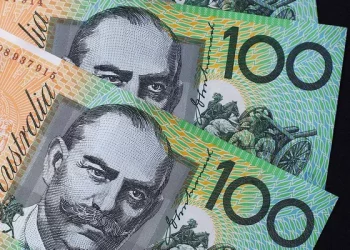Currency convertibility refers to the ease with which a country’s currency can be exchanged for another currency or gold. This concept is crucial in the global economy as it influences a country’s participation in international trade and investment. Convertibility affects how foreign investors perceive the country’s economy and also determines the country’s financial openness. Freely convertible currencies, such as the US dollar or the euro, face few or no restrictions during conversion. On the other hand, non-convertible or partially convertible currencies are subject to government controls and regulations that limit the ease of exchange.
Understanding the Thai Baht
The Thai Baht (THB) is the official currency of Thailand and has been in use for centuries. It is issued and regulated by the Bank of Thailand (BOT), the country’s central bank. As one of Southeast Asia’s more stable currencies, the Baht plays an important role in regional trade and investment. In recent years, Thailand has maintained a managed float exchange rate system, allowing the Baht to fluctuate according to market forces while permitting intervention by the central bank to avoid extreme volatility. This system offers a degree of flexibility while ensuring economic stability.
What is Freely Convertible Currency?
A freely convertible currency is one that can be exchanged without any regulatory restrictions for another currency on international markets. This means that both residents and non-residents can conduct currency exchanges without government intervention or limitations. Freely convertible currencies support seamless trade, travel, and investment, and are often held as reserve currencies by central banks. Full convertibility typically indicates strong financial governance and confidence in the currency’s stability. On the other hand, limitations on convertibility can signal capital controls or efforts to manage economic vulnerabilities.
Types of Convertibility
To better understand whether the Thai Baht is freely convertible, it’s essential to look at the different forms of currency convertibility:
- Current Account Convertibility: Allows residents and non-residents to convert local currency into foreign currencies to conduct transactions related to goods, services, income, and current transfers.
- Capital Account Convertibility: Allows for the free conversion of local financial assets into foreign financial assets and vice versa, without restrictions.
- Partial Convertibility: Some restrictions exist either on the current account or capital account transactions.
Thailand generally allows current account convertibility but imposes certain restrictions on capital account transactions, which suggests that the Baht is not fully convertible in the strictest sense.
Thailand’s Foreign Exchange Regulations
The Bank of Thailand plays a pivotal role in overseeing the currency exchange mechanisms and regulating the convertibility of the Baht. Foreign exchange controls are implemented primarily to maintain financial stability and mitigate the risks of speculative capital flows. These controls include regulations on foreign exchange transactions, reporting requirements for large transactions, and restrictions on capital movements in and out of the country.
Thai residents are generally allowed to engage in foreign exchange transactions for current account purposes. However, the BOT enforces limits on the amount of foreign currency individuals and businesses can take out of or bring into Thailand. Moreover, certain capital account transactions, such as portfolio investments abroad or borrowing from foreign lenders, require approval from regulatory authorities.
Is the Thai Baht Freely Convertible?
In summary, the Thai Baht is not freely convertible in the same way that the US dollar or euro is. It is classified as a partially convertible currency due to existing controls on capital account transactions. While Thailand permits convertibility for trade and service-related transactions, it maintains oversight and restrictions on capital flows to manage financial stability and prevent speculative attacks on the currency.
This approach reflects a cautious stance taken by the Thai government to shield the economy from volatile capital movements, particularly in light of past financial crises, such as the 1997 Asian Financial Crisis. Therefore, while foreign investors and businesses can typically convert Baht for routine commercial purposes, more significant financial transactions may require compliance with regulatory measures.
Factors Influencing Baht Convertibility
Several key factors influence the convertibility of the Thai Baht:
- Economic Stability: A stable macroeconomic environment reduces the need for strict capital controls.
- Monetary Policy: The BOT’s policy stance affects how freely the currency can be exchanged.
- Political Environment: Political uncertainty can prompt authorities to tighten exchange controls.
- Foreign Reserves: High levels of reserves give confidence and room for currency convertibility.
- International Commitments: Agreements with institutions like the IMF can influence convertibility norms.
Thailand carefully balances these factors to maintain partial convertibility while supporting economic growth and investor confidence.
Convertibility for Foreign Investors
Foreign investors interested in the Thai market face several regulations when dealing with the Baht. Thailand has established channels for foreign direct investment (FDI), but portfolio investment remains more controlled. The Foreign Business Act outlines restrictions on foreign ownership in specific sectors, and the BOT requires certain approvals for capital inflows and outflows.
However, Thailand has liberalized many investment-related policies to attract foreign capital. Foreigners can repatriate profits and dividends in most cases, provided they comply with documentation and tax regulations. Currency conversion for such activities is permitted through authorized banks and dealers. These measures ensure that legitimate business activities are not unduly hindered, even though broader convertibility remains limited.
Convertibility for Tourists and Residents
For tourists and Thai residents, the currency exchange process is relatively straightforward. Tourists can easily convert their foreign currency into Baht at banks, currency exchange counters, and hotels. Thailand has a well-established infrastructure for supporting travel-related currency exchanges.
Residents are allowed to hold foreign currency accounts, subject to specific conditions. They can also purchase foreign currency for travel, education, and other approved purposes. However, there are limits on the amounts that can be taken abroad, and certain transactions must be reported to the BOT. These controls are in place to monitor outflows and maintain macroeconomic balance.
Comparing Thai Baht with Other Currencies
To understand the Baht’s convertibility better, it’s helpful to compare it with other major currencies:
- US Dollar (USD): Fully convertible with no restrictions.
- Euro (EUR): Fully convertible across the Eurozone and globally.
- Japanese Yen (JPY): Freely convertible with minimal restrictions.
- Indian Rupee (INR): Partially convertible, similar to the Baht.
- Chinese Yuan (CNY): Managed and partially convertible.
In this context, the Thai Baht aligns more closely with the Indian Rupee and Chinese Yuan rather than the fully convertible currencies like the USD or Euro.
Benefits of Partial Convertibility
Maintaining partial convertibility offers certain strategic benefits for Thailand:
- Economic Stability: Limits vulnerability to sudden capital outflows.
- Controlled Inflation: Helps manage inflation by controlling currency speculation.
- Financial Sovereignty: Ensures the government retains control over key financial levers.
- Resilience Against Crises: Shields the economy from global financial shocks.
These benefits underscore the rationale behind the Thai government’s cautious approach. While it may limit financial openness, it enhances long-term stability and confidence in the currency.
Challenges of Limited Convertibility
Despite its benefits, partial convertibility also presents challenges:
- Investment Barriers: May deter some foreign investors due to added regulations.
- Higher Transaction Costs: Compliance and approval requirements can increase operational expenses.
- Market Perception: Limits the Baht’s appeal as a reserve currency or global trading medium.
Thailand continues to navigate these challenges by gradually liberalizing its financial markets while maintaining necessary safeguards.
Thailand’s Roadmap for Liberalization
The Thai government and the BOT have laid out a roadmap for gradual financial liberalization. Key components of this strategy include:
- Relaxation of Capital Controls: Incremental steps to ease restrictions on capital flows.
- Strengthening Financial Institutions: Enhancing the resilience of domestic banks and financial entities.
- Improving Transparency: Simplifying regulatory processes for currency conversion.
- Promoting Baht Usage: Encouraging regional trade in Baht to reduce reliance on foreign currencies.
These reforms aim to position Thailand as a more attractive destination for global capital while maintaining financial prudence.
Conclusion
The Thai Baht is not freely convertible in the full sense, but it allows considerable flexibility under current account transactions. The currency operates under a managed float system with partial convertibility, reflecting a balanced approach to financial openness. While foreign investors and residents enjoy relatively easy access to currency conversion for legitimate purposes, capital account restrictions remain in place to safeguard economic stability.
Thailand’s cautious but strategic approach serves to protect the economy from external shocks while fostering gradual integration into the global financial system. As reforms continue, the Thai Baht may move closer to full convertibility, but this transition will likely be measured and aligned with the country’s long-term economic goals.
Related Topics:

























